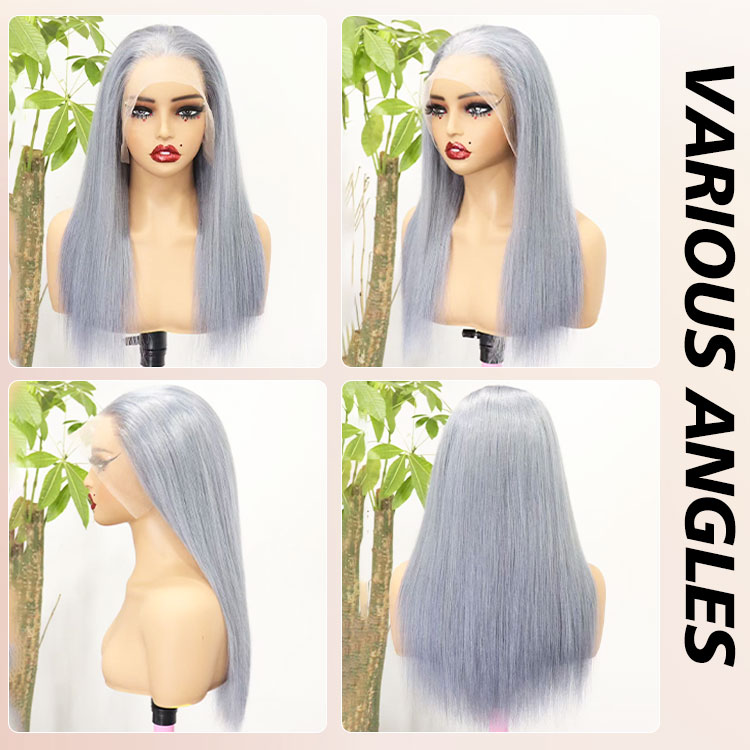The demand for human hair has been on the rise, driven by the beauty industry’s insatiable appetite for hair extensions, wigs, and other hair-related products. At the heart of this bustling market lies the wholesale human hair sector, which supplies the raw materials to manufacturers and retailers worldwide. This article delves into the dynamics of the wholesale human hair industry, examining its key players, market trends, and the factors that contribute to its growth.
The Role of Wholesale Human Hair Suppliers
Wholesale human hair suppliers are the linchpins of the hair product supply chain. They source, process, and distribute human hair to meet the demands of a global market. Here’s a closer look at their role:
- Sourcing: Suppliers source human hair from various regions, often ensuring that it is ethically collected with the donor’s consent.
- Processing: The hair is processed to remove impurities, sanitized, and treated to maintain its quality and longevity.
- Distribution: Wholesale suppliers distribute the processed hair to manufacturers, retailers, and salons, ensuring a steady supply of raw materials.
Market Trends: Shaping the Industry
The wholesale human hair industry is influenced by several key market trends:
- Quality over Quantity: There is a growing preference for high-quality human hair over synthetic alternatives, with consumers willing to pay a premium for better products.
- Ethical Sourcing: Ethical sourcing has become a significant trend, with consumers and businesses alike demanding transparency and responsibility in the supply chain.
- Customization: The demand for customized hair products, tailored to specific needs and preferences, is on the rise.
The Factors Driving Growth in Wholesale Human Hair
Several factors contribute to the growth of the wholesale human hair industry:
- Beauty Standards: The increasing importance of beauty standards and the desire for self-expression have driven up the demand for hair extensions and wigs.
- Globalization: The globalization of the beauty industry has expanded the market for human hair products, with exports playing a significant role in industry growth.
- Technological Advancements: Advances in processing technologies have improved the quality and variety of human hair products available in the market.
Wholesale Human Hair Grades: Understanding the Differences
Wholesale human hair comes in various grades, each offering different benefits and price points:
- Virgin Hair: This is the highest grade of human hair, unprocessed and free from chemical treatments, offering the most natural look and longevity.
- Remy Hair: Remy hair is processed hair where the cuticles are intact and aligned in the same direction, reducing tangling and increasing durability.
- Non-Remy Hair: This grade of hair is processed and may have the cuticles stripped or misaligned, making it less expensive but also less durable.
Ethical Sourcing: A Priority for Wholesale Suppliers
Ethical sourcing is a critical aspect of the wholesale human hair industry:
- Donor Consent: Ethical suppliers ensure that all hair is sourced with the donor’s full consent, respecting their rights and cultural practices.
- Transparency: Transparency in the sourcing process helps build trust with consumers and businesses, ensuring a reputable supply chain.
- Certifications: Many wholesale suppliers hold certifications from ethical and sustainable sourcing organizations, further validating their commitment to responsible practices.
The Global Reach of Wholesale Human Hair
The wholesale human hair industry has a global reach, with suppliers catering to a diverse international market:
- Export Markets: Wholesale suppliers export human hair to various countries, contributing to the growth of the global beauty industry.
- Cultural Exchange: The global distribution of human hair products facilitates cultural exchange, with different hair trends influencing various regions.
- Economic Impact: The industry has a significant economic impact, providing employment and fostering local communities in the regions where hair is sourced.
Challenges and the Future of Wholesale Human Hair
The wholesale human hair industry faces challenges that will shape its future:
- Competition: Intense competition requires suppliers to differentiate their products and offer unique value propositions.
- Regulatory Compliance: Compliance with international regulations and standards is essential for maintaining market access and consumer trust.
- Market Saturation: As the market becomes more saturated, suppliers must find ways to innovate and meet evolving consumer demands.
Conclusion
The wholesale human hair industry is a dynamic and essential component of the global beauty market. Its growth is fueled by changing beauty standards, ethical sourcing practices, and technological advancements. As the industry continues to evolve, wholesale suppliers will play a pivotal role in shaping its future, meeting the demands of consumers and contributing to the economic and cultural landscape of the beauty industry.





